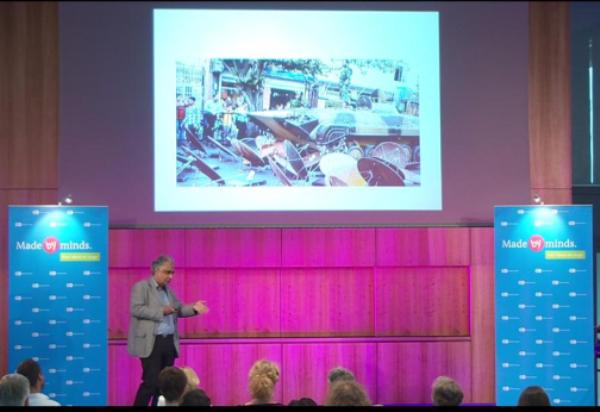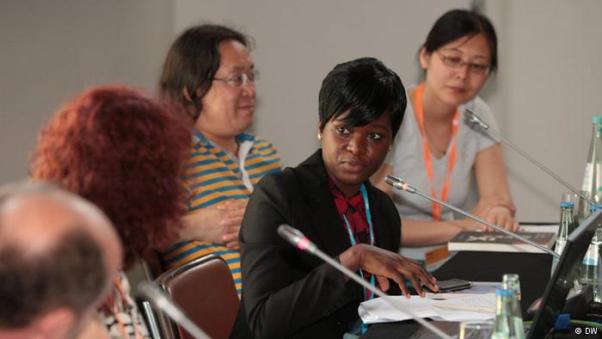Search Results for Tag: censorship
Finding allies in the cat and mouse game of censorship in Iran
In places where media freedom is guaranteed, censorship isn’t given a second thought. In places like Iran, people confront it every day. On television, newspapers, radio and online censorship in Iran is everywhere. There is a war of information in Iran with propaganda adding to the oppression of free information. People try and find information on the one side, and the government tries to stop it on the other.
In Iran, DW’s online content in Farsi has seen huge leaps in usage since Iranian authorities clamped down on the Iranian internet. By using circumvention techniques like Psiphon, DW has been able to provide people in Iran with unbiased news coverage. But it is a game of cat and mouse , and the rules change constantly. What worked a year ago often has to be changed. DW keeps up with the latest technology and has many partners with the same goal.
DW is joined by a group of international broadcasters known as the DG 7, which includes the BBC and France Médias Monde that meet and work together regularly to create solutions together and keep up with fighting censorship around the world.
Joining a plenary discussion on censorship at this year’s Global Media Forum is the Iranian journalist Arash Sigarchi. He is now Web Manager of Voice of America (Persian) in the USA. He was imprisoned for three years in Iran for using a blog and telephone interviews to try and get around government censorship. Now Sigarchi says that new possibilities of social media give people many ways to freely share information. This and the consistent effort of international broadcasters like DW to get through to people all over the world, can help ensure the future is built on truth.
Taking a new look at digital activism
For the past 11 years, The Bobs is where DW has honored the world’s most courageous, creative and compelling international online activists and bloggers.
The 2015 competition is kicking off with new categories that introduce a fresh focus on how digital activism is changing the world. The Bobs jury categories will now put the spotlight on the critical issues of privacy and security, arts and media and social change. Judges will determine how contestants have used their digital skills and activism to create positive impacts within these fields. The new format also allows for more than one contestant to stand out for their exemplary work.
How can a digital crusader improve economic development and living conditions? Who is producing the most innovative or avant-garde formats to speak out online? What is the most cutting-edge software for protecting data and digital privacy? On June 22 at the Global Media Forum in Bonn, we will all get the chance to find out.
The core values of the Bobs remain the same, even if they will now be presented more directly. Last year’s winner of best blog was the Egyptian photo blogger, Mosa’ab Elshamy, who showed courage combined with a brilliant eye for powerful imagery. His blog is an example of where fine art meets journalism. In 2013 the “grand prize” winner was the Chinese blogger Li Chengpeng, whose tireless efforts for freedom of speech made him a digital celebrity in China and a salient example of contemporary activism as well as a trendsetter for those living under oppression. No matter the year or the format, the Bobs have always looked for the bravest and the best.
If you are a blogger or online activist you can submit your website now. You have until March 12 to enter your submissions.
New Outernet partnership puts focus on free Internet
DW recently developed a content partnership with Outernet. Outernet shares many of the same values as DW, including the belief that access to knowledge and information is a human right. Outernet’s plan is to guarantee this right by taking a practical approach to information delivery. Their plan is to use a fleet of approximately 200 satellites to create a satellite-supported WiFi network to provide individuals with access to information. Through satellite data broadcasting, Outernet is able to bypass censorship, ensure privacy and offer a universally-accessible information service at no cost to users. It’s the modern version of shortwave radio, or BitTorrent from space.
DW’s Oliver Linow contirbuted to the Outernet blog in which he stated:
“It is more important than ever to deliver uncensored information to those who don’t enjoy the freedom of opinion and freedom of the press at home. Outernet strives to provide this open access to everyone around the world. We share those values. As a partner, we will accompany Outernet over the next few months and provide them with practical support in their test phase. This undertaking by Outernet could represent one of several ways to combat limited net neutrality and Internet censorship – for example in Africa and parts of Asia. Only time will tell, if this will be successful, but we are happy to collaborate along the way in this grand experiment in global information equality.”
Exploring security in the digital world
As the Internet gradually evolves into the primary global communication medium, issues of data protection and control are becoming critically important. For journalists and the media, the importance of preventing censorship and protecting sources is a front line issue in the digital age. At the 2014 Global Media Forum, these issues will be explored by the experts and those affected.
Exploring a provocative look cyber security is a talk organized by the Bonn International Center for Conversion (BICC) titled Western surveillance technologies and “ungoverned spaces” – Challenges to protect (media) freedom. The discussion explores how governments in collaboration with major western telecommunication companies act as agents of surveillance and censorship which are seeking to control information online. BICC says companies like Nokia and Ericsson are among those providing the technology which is used by oppressive governments for censorship and surveillance and that western governments are also exploring invasive ways to collect information online.
Coming from the perspective of a major telecom provider is a panel discussion moderated by the head of cyber and data security at Deutsche Telekom titled: Caught in the web – The media as both victim and perpetrator alike. The panel will explore state of the art techniques used to provide online security while outlining the latest challenges faced by media outlets in a dangerous digital world. The discussion will emphasize the unique status of media outlets as a target for hacking and cyber attacks from the insider perspective of an infrastructure provider.
Another angle of the issue is covered in a discussion hosted by the Electronic Frontier Foundation (EFF) titled: Citizen privacy and data protection: digital security training for social media activists and dissidents. The talk explores how activists, dissidents and even journalists are often the primary targets of digital surveillance. During the talk, experts from EFF will demonstrate simple techniques journalists can use to protect themselves.
Next week we will showcase a selection of events at the Global Media Forum dealing with the interplay between digital media and fundamental rights and social development.







Feedback